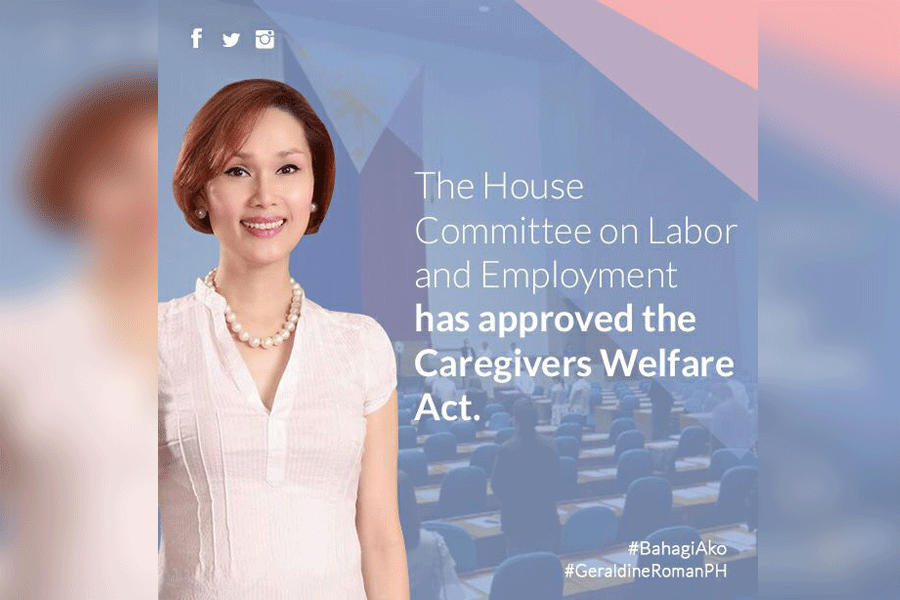The House Committee on Labor and Employment chaired by Cagayan Rep. Randolph S. Ting has recently approved the proposed “Caregivers Welfare Act” (House Bill No. 269) that seeks to institute policies for the protection of the rights of caregivers in the country and promotion of their welfare.
HB 269 is authored by Rep. Geraldine B. Roman (1st District, Bataan) which also seeks to ensure the policies will maintain excellent and globally competitive standards for the caregiver professional service.
Other than nurses, Filipino caregivers are in demand here and abroad because of their “unconditional and genuine care for their clients.” They work in private homes, board and care homes, and in health care facilities.
Based on a published report, caregivers are classified only as “other” workers and they fall under the third preference employment-based category.
To work as a caregiver, one does not have to possess a bachelor’s degree but needs only a high school diploma and a few months of work experience.
The sudden increase in the popularity of professional caregivers in the Philippines and abroad has prompted the government to require all caregiving schools in the country to register their caregiving program with the Technical Education and Skills Development Authority (TESDA), which is tasked to manage and supervise technical education and skills development.
“Caregivers must also be protected against abuse, harassments, violence and economic exploitation. These proposed policies must also be enacted into law to maintain excellent and globally competitive standards for the caregiver professional service,” Roman reiterated.
Roman’s bill also mandate the Department of Labor and Employment (DOLE) to develop a model employment contract for caregivers which shall be made available at all times, free of charge to caregivers, employers, and the general public.
The bill also seeks to provide fixed working hours based on the employment contract signed by the parties and in accordance with the labor laws, rules and regulations. A rest period of 8 hours or at least 24 hours per week is also suggested to be enforced depending on the caregiver’s preference. –Mhike Cigaral





